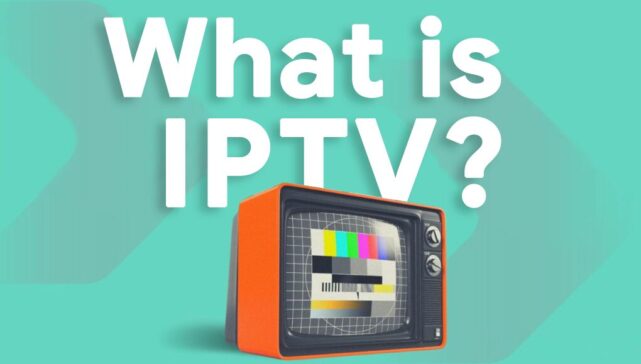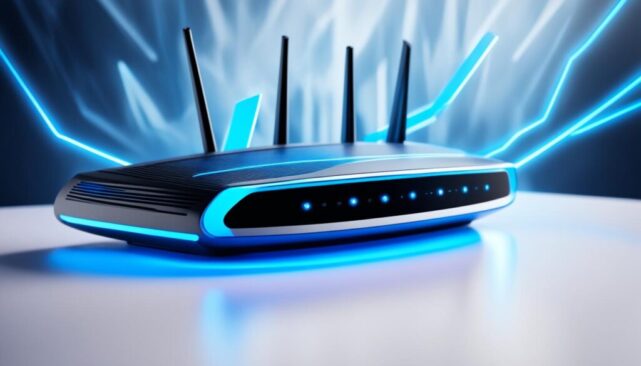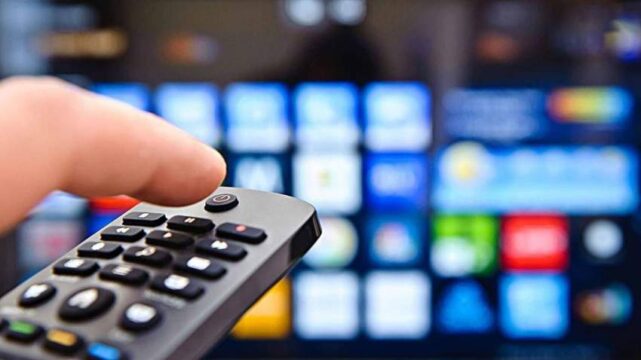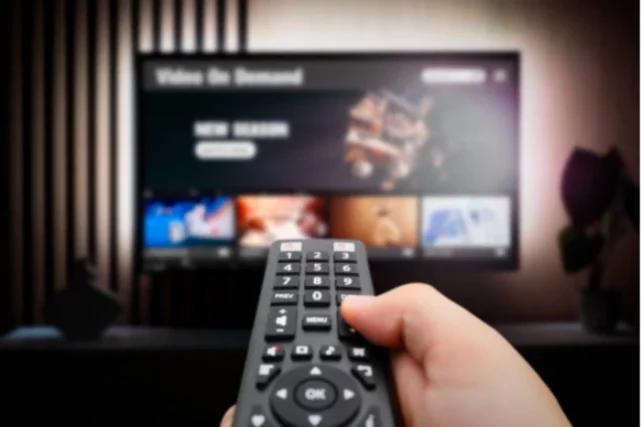Internet speed is a crucial factor for anyone using IPTV services. Picture this: you’re about to watch your favorite show or an important sports match, but the screen suddenly freezes. Frustrating, right? I’ve been there too, and I know exactly how important it is to have a stable connection to enjoy seamless streaming.
In this article, I’ll explain how internet speed affects IPTV performance, what you need to ensure a smooth viewing experience, and how you can optimize your setup for the best possible quality.
Key Points
- Internet speed directly affects IPTV quality.
- Buffering occurs when the connection is too slow.
- Higher quality streams require faster internet speeds.
- Stability of the connection is as important as speed.
- External factors, like other devices, can impact performance.
What is IPTV, and Why Does Internet Speed Matter?

IPTV, or Internet Protocol Television, is the technology that delivers TV content via the internet instead of traditional cable or satellite systems.
If you use a service like Sverige IPTV, which offers access to thousands of channels worldwide, then the quality of your internet connection becomes even more important.
With their service, you can enjoy streaming in 4K resolution, but only if your connection can handle the bandwidth required for such high-definition content.
How Internet Speed Affects Streaming Quality
Internet speed determines how fast data is transferred to your device. For IPTV, this means how quickly video content can be streamed.
A higher speed ensures better picture quality, while a lower speed can result in buffering, lagging, or even complete disconnection. The required speed depends on the quality of the stream—standard definition, HD or 4K.
| Quality of the stream | Internet speed |
| Standard Definition (SD) | You’ll need at least 3-4 Mbps for uninterrupted streaming. |
| High Definition (HD) | To stream in HD, aim for at least 5-8 Mbps |
| Ultra High Definition (4K) | 4K content requires at least 25 Mbps or more. |
As you can see, the higher the quality, the more data is needed. Without the right speed, your viewing experience will suffer, no matter how good your IPTV provider is.
The Role of Connection Stability

Speed is one thing, but stability is just as important. Even if you have the fastest connection, interruptions or fluctuating speeds will cause issues with IPTV. Constant buffering is often the result of an unstable connection, where the speed drops below what is necessary for the stream you’re watching.
To maintain a stable connection, consider using a wired connection rather than Wi-Fi. Ethernet cables provide a direct, steady connection, avoiding the potential signal drops that sometimes occur with wireless networks.
If you must use Wi-Fi, place your device as close to the router as possible and reduce interference by minimizing the number of connected devices.
Factors That Impact Streaming Performance
Several factors can affect your IPTV streaming performance, even if your internet speed seems adequate:
- Network Congestion: If multiple devices are using the connection simultaneously, your available bandwidth might drop, affecting the stream.
- Router Quality: Older routers may not support higher speeds, limiting the potential of your connection.
- Device Compatibility: Streaming on older devices might not be optimized for HD or 4K content, causing lag or buffering.
- Server Quality of the IPTV Provider: Even with fast internet, the provider’s server quality matters. If their servers are overloaded or slow, it will reflect in your viewing experience.
How to Optimize Your IPTV Experience

To get the most out of your IPTV setup, there are a few key steps you can take to ensure smooth and high-quality streaming:
- Test Your Connection Speed: Regularly check your internet speed to ensure it meets the requirements for the quality you want to stream. You can easily do this with online speed tests.
- Upgrade Your Router: If you experience frequent buffering, it may be worth upgrading to a more modern router that can handle higher speeds and provide better coverage.
- Limit Devices Using Bandwidth: If too many devices are connected to your network, it can slow down your IPTV. Try to reduce the load on your connection, especially when streaming 4K content.
- Use a VPN: Sometimes, your internet service provider may throttle your speed when it detects heavy streaming. Using a VPN can help you bypass such restrictions and maintain consistent speeds.
How Much Speed Do You Actually Need?
When deciding on your internet plan, consider how many devices will be connected and what quality of content you plan to stream. For a household with multiple users watching 4K content, at least 50-100 Mbps is recommended. If you live alone and primarily watch in HD, 10-20 Mbps might suffice.
Remember that advertised speeds are often “up to” a certain amount, and actual speeds can vary. Be sure to choose a plan that provides a buffer above what you think you’ll need to avoid any issues.
External Factors Affecting Streaming

Aside from internet speed, other external factors can also affect your IPTV experience. Weather conditions, server issues, and regional outages can disrupt streaming services. To mitigate such risks, always ensure that your provider has backup servers or a strong infrastructure that can handle unexpected issues.
Many IPTV providers offer free trials so you can test the service on your connection before committing. This is a great way to ensure your setup is compatible and can handle the load required for high-quality streaming.
Conclusion
Internet speed plays a key role in how well IPTV services perform. Without the right speed and a stable connection, you’ll likely experience buffering, poor picture quality, and frustration. To enjoy a smooth IPTV experience, ensure that your connection meets the necessary requirements based on the type of content you want to stream.
Whether you’re watching sports in HD or movies in 4K, having the right setup can make all the difference. By following the tips outlined above, you can optimize your internet connection and enjoy seamless IPTV streaming, no matter which provider you use.
To sum up, your internet connection should be fast, stable, and free of unnecessary load to guarantee the best possible IPTV experience.




